SUMMARY
This is AI generated summarization, which may have errors. For context, always refer to the full article.
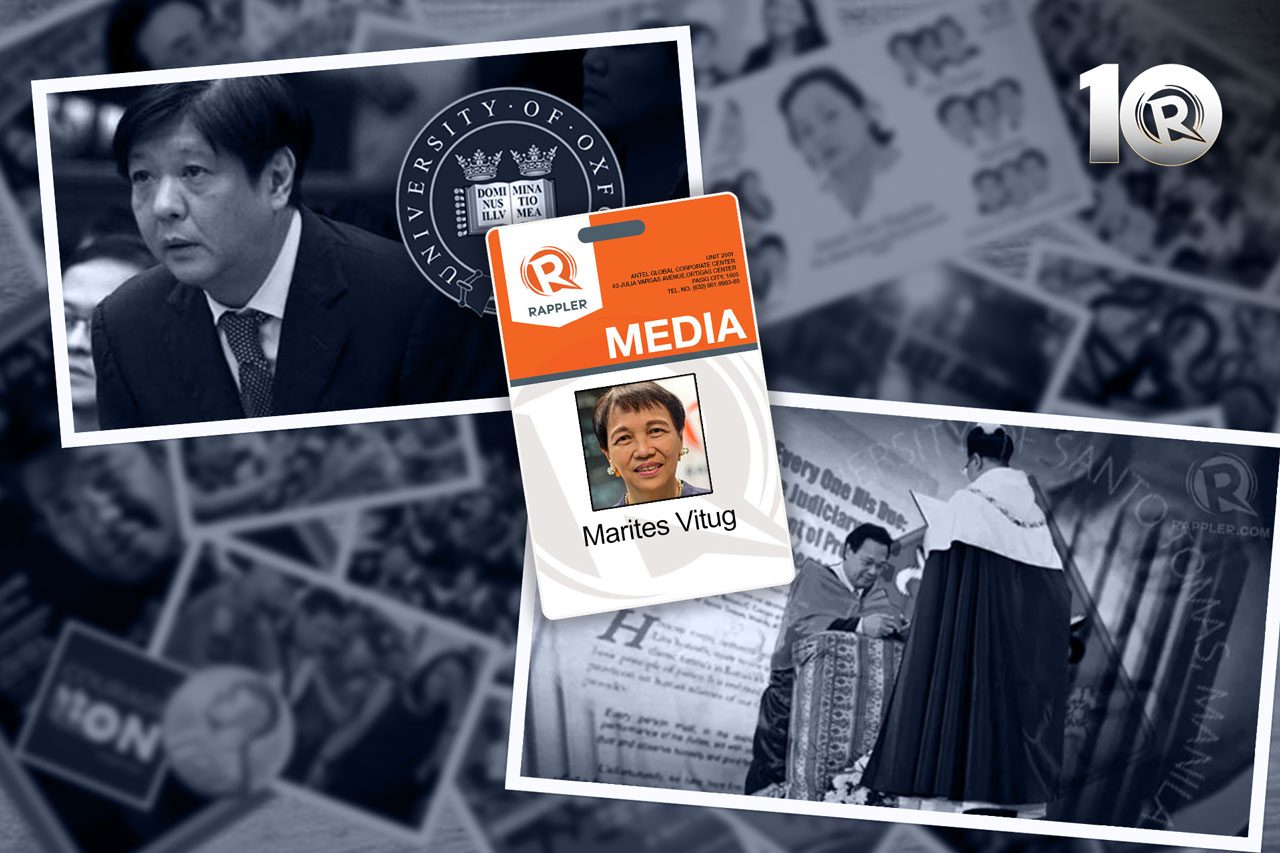
We are publishing a series from Rappler employees and contributors, old and new, as part of our commemoration of Rappler’s 10th anniversary in January 2022.
MANILA, Philippines – About a week before Rappler was to launch on January 1, 2012, it published an exclusive story I wrote on then-chief justice Renato Corona’s doctorate in civil law and the dubious circumstances surrounding it. Apparently, the University of Santo Tomas (UST) bent its rules to accommodate the country’s top judge.
We – my researcher, Purple Romero, and I – found out that Corona did not fulfill two basic requirements of UST: He had no dissertation and he went beyond the five-year residency for the PhD program.
Why did this matter? Here’s what we wrote then: “This unusual practice may set a precedent in UST and send a wrong signal to students that rank and influence trump academic rigor.” This story was essentially about fairness, applying the rules evenly to uphold merit rather than power connections.
The story caught the attention of the Inquirer’s then editor-in-chief, Letty Jimenez Magsanoc, who sought permission to use it for its print edition. Thus, the Inquirer’s first issue for 2012 ran it as its headline story.

What was supposed to be a quiet launch of Rappler turned out differently, setting off fireworks. UST, which did not reply to our repeated requests for an interview, responded to the Inquirer and denied it broke its rules. UST also cast doubt on the messenger, questioning my “objectivity” and asking if Rappler was a “legitimate news organization.” In a classic put down, UST said of Rappler, “What’s that?”
This story took a life of its own. Other news organizations reported on it, opinion writers weighed in. Looking back, I am surprised at the storm it ignited, resulting in five more stories which Rappler published.
We reported UST’s statement to the Inquirer that it waived the dissertation requirement for Corona and that a public lecture he gave was adequate for his PhD.
To let the readers in on our efforts to reach out to UST, we shared about a dozen faxed letters and e-mails Rappler sent to UST asking questions and requesting an interview.
Romero wrote an account of her six-month back and forth with UST which never answered our questions. She visited the UST library which ended in a futile search for Corona’s dissertation.
We wrote about the contrasting statements of Corona and UST about the residency requirement.
We felt we had to reply to UST which said that it was “at a loss on how to respond to ‘online journalism.'” The title of the piece, “Online journalism is the future,” said it all.
Intrepid start-up
While our story was based on solid research, I worried about the controversy it stoked for Rappler, which was just starting out. Would advertisers support this start-up which was unafraid to raise questions about the Chief Justice? Pretty soon, it could do the same to others in high offices – and earn the ire of the powerful. (Editor’s note: Corona died in 2016.)
My worry arose out of our experience in Newsbreak, a political magazine of which I was editor-in-chief. Our investigative reporting apparently turned off big advertisers. Well, it was also tough to sustain a print publication – we started in 2001 when the media landscape was still heavily print – thus we shifted to a purely online operation until we merged with Rappler in 2011.
At the time, I was not yet editor-at-large since I was working on a book on the Supreme Court. That was how we stumbled on the Corona-UST story, while doing research for a sequel to “Shadow of Doubt: Probing the Supreme Court.”
I’m glad that my initial worry turned out to be with little basis as Rappler forged ahead, stirring up more storms – and is now happily celebrating its 10th year.
Marcos, Oxford, and Wharton
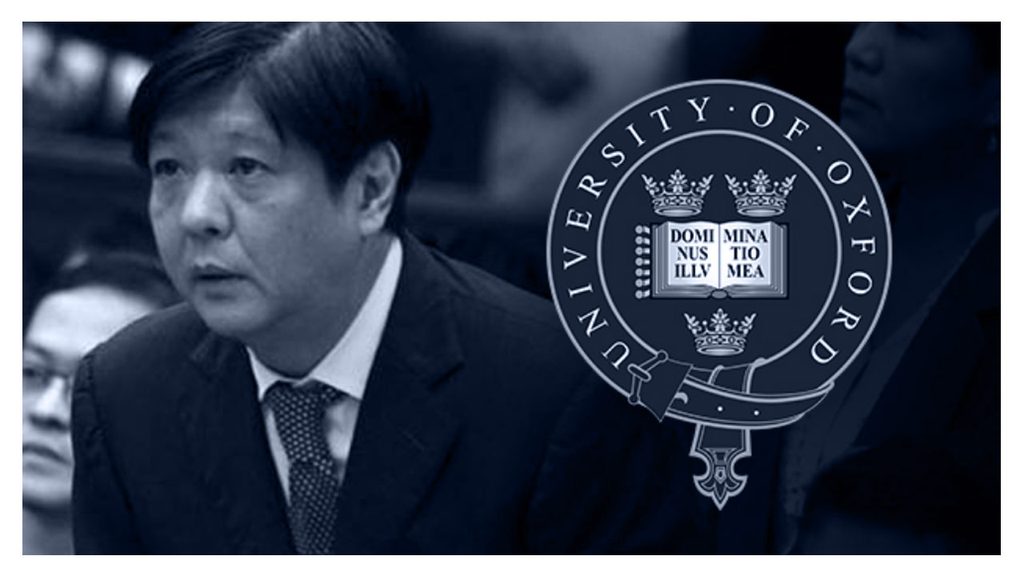
Three years after the Corona story, I would report on a similar issue, this time on then-senator Ferdinand “Bongbong” Marcos Jr.’s false claims about graduating from Oxford University and the Wharton School of the University of Pennsylvania.
It all began when I got an email from an Oxford graduate who attended the university at about the same time Marcos did. He said that Marcos Jr.’s resumé, as published on the Senate website, did not ring true. By his recollection, the senator did not graduate with a bachelor’s degree in philosophy, politics, and economics.
To get to the bottom of this, we did online and physical research. Carla Montemayor, a Rappler contributor who lives in London, visited the Bodleian Library at Oxford University where one can find records of those who successfully completed their degrees. Marcos Jr.’s name did not appear in the records of the year (1978) he claimed he graduated. Carla went further and checked other years and the results were the same.
After initially harping on strict privacy and confidentiality rules, Oxford confirmed to us that Marcos Jr. received a “special diploma” which is not the equivalent of a degree.
If Marcos lied about Oxford, could he have done the same for Wharton? This question niggled at the back of my mind then. The story would hang without the Wharton episode.
Doing research on Wharton was pretty straightforward. I was able to gain access to a database of Wharton alumni and Marcos Jr.’s name did not appear in the 1981 list, the year he claimed he graduated with an MBA. Wharton also confirmed, through a professor I know, that “Marcos Jr. entered the MBA program in 1979 and attended until the fall of 1980…but never graduated.”
At the time, who would have known that this story would kick up a fierce storm six years later when Marcos Jr. declared his bid for the presidency?
Again, to the core question: Why did this story matter?
We always remind ourselves that public office is a public trust. When government officials lie, they sever their bond with the public. How can we expect honesty and accountability from those who disregard or conceal the truth?
For journalists, this is a recurring theme, a constant in what we do. Our work, after all, is more a “mission” than a career. As Pope Francis reminded us, “Journalism is not so much a matter of choosing a profession but rather of embarking on a mission….” He urged us to “preserve and cultivate this sense of mission which is at the origin of your choice.” – Rappler.com
Marites is Rappler’s editor-at-large and hosts Rappler’s show Southeast Asia Speaks, where she talks to newsmakers and personalities about current affairs in the region.
Add a comment
How does this make you feel?

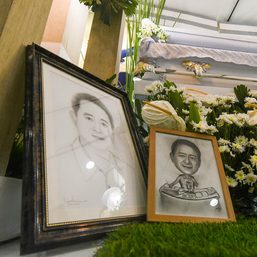
![[OPINION] You don’t always need a journalism degree to be a journalist](https://www.rappler.com/tachyon/2024/06/jed-harme-fellowship-essay-june-19-2024.jpg?resize=257%2C257&crop=287px%2C0px%2C720px%2C720px)


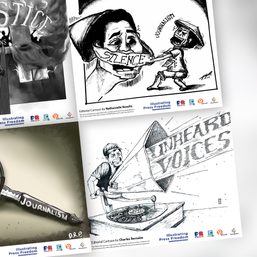
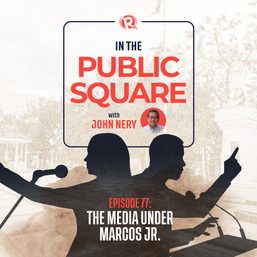
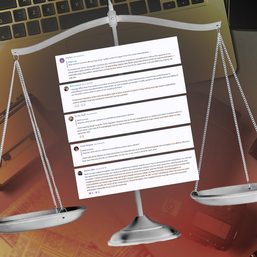
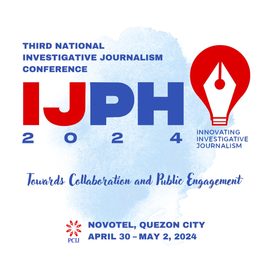










There are no comments yet. Add your comment to start the conversation.